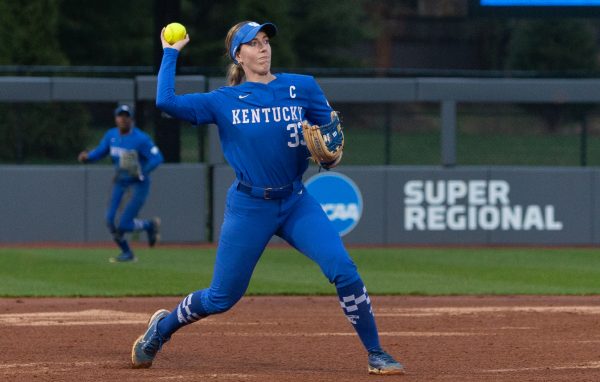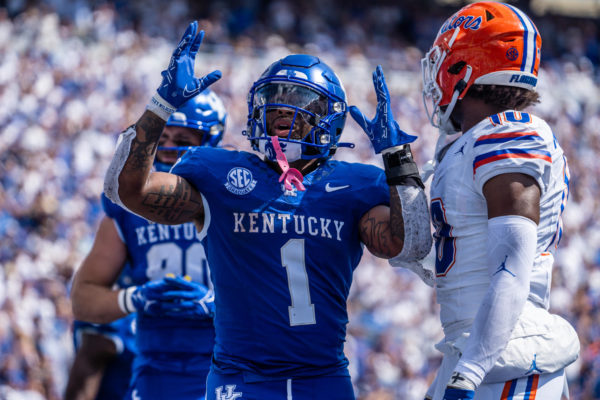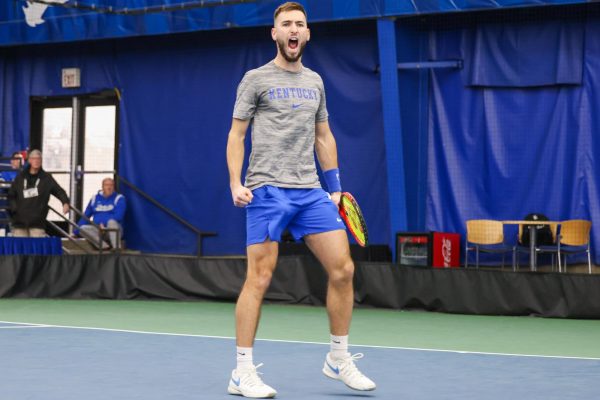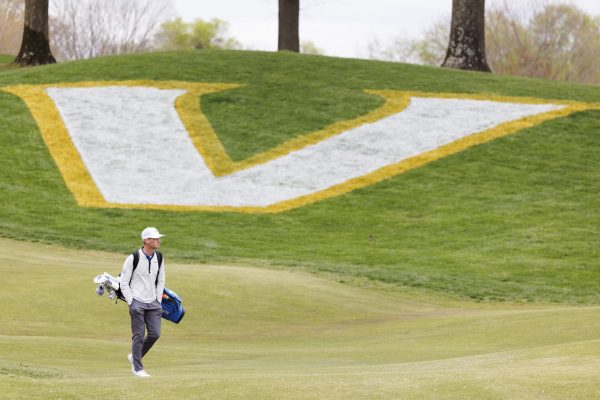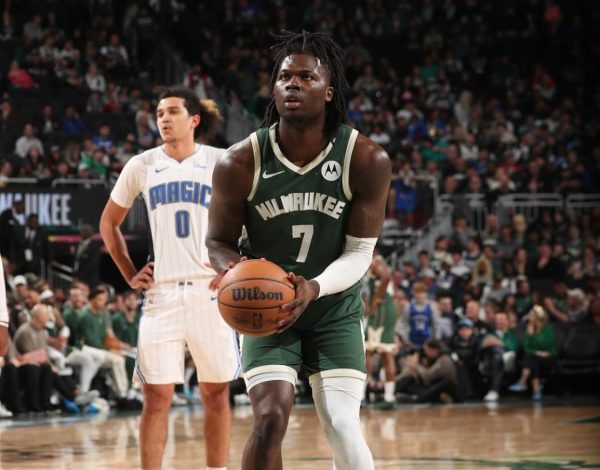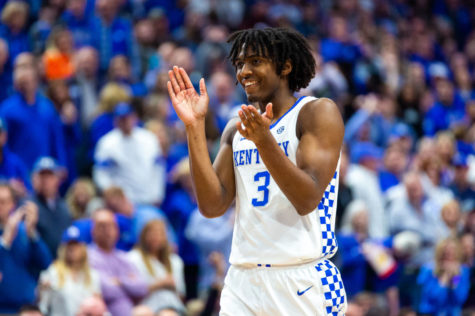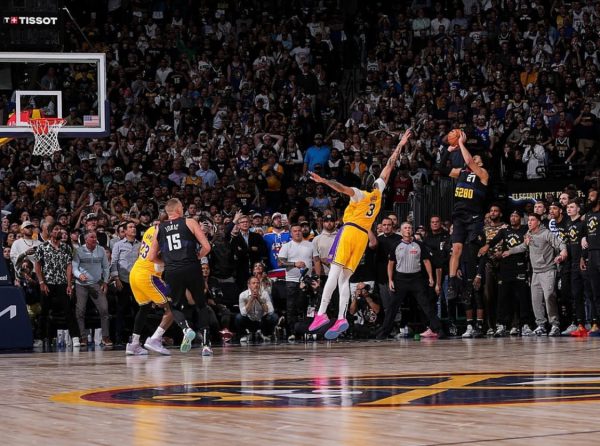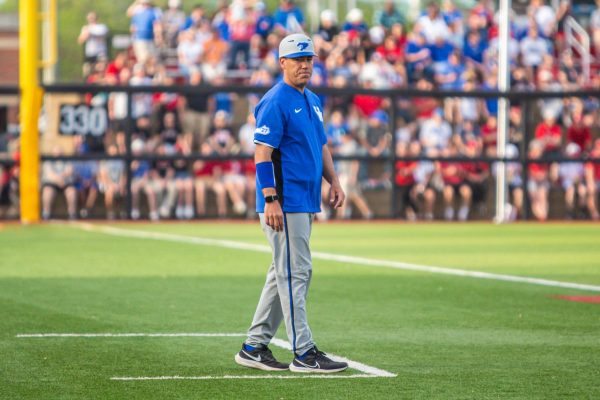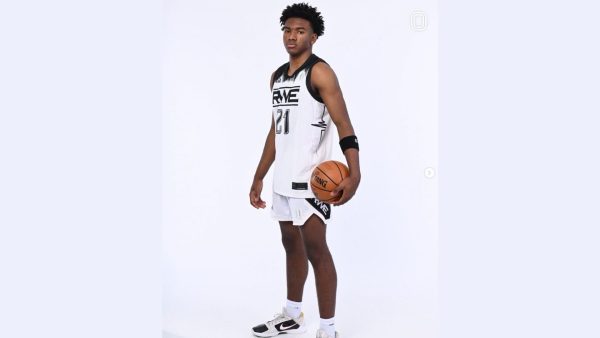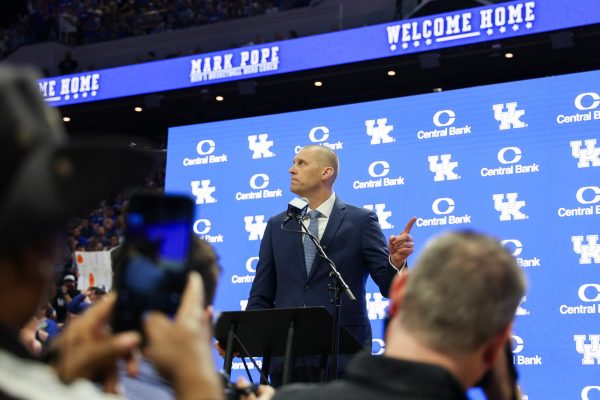Students use storytelling to play games
April 24, 2008
By Cathy Barnes
In the early hours of the morning, crushed cans of Red Bull and Mountain Dew littered the floor. Nearby, four bodies lay in various positions on the carpet and on couches, passed out after caffeine highs left them at rock bottom. Cheeto dust coats twitching fingers as they dream of grolls, wererats and other magical beasts.
This wreckage is found after a nightlong session of Dungeons and Dragons, a tabletop role-playing game. These college students may awaken in a few hours and resume play for another day, or the “Game Master†may call it quits.
With an average session running four to five hours, some gamers of this group have been known to go for as long as 18 hours on a sugar-driven, energy-filled marathon of fantasy imagination.
The 30-member coalition calls itself the Miskatonic Student Union. The campus organization provides tabletop role-play for UK students with a focus on board games, card games and video games. Their name, Miskatonic, refers to the fictional university created by H.P. Lovecraft, an American author of horror, fantasy and science fiction. The club will celebrate its 20th anniversary this fall.
Chisa Puckett, a philosophy senior and current president, said the group was even more popular when it was first founded. The president-elect is her husband, Jeremy Puckett, an English sophomore.
Whether for social experience or the gaming opportunities, most of the members come together for the same reason: It’s a place to find commonalities.
As laughter erupted at Jeremy Puckett’s jokes about the stereotypical “gamer physique†— either doughboy pudginess or skeletal gauntness — Josh Henry, a mining engineering freshman and fellow member, smiled.
“This is why I like this group,†Henry said.
Henry joined in January with his roommate, chemical engineering freshman Zane Eggett, after discovering the club. Both have been playing Dungeons and Dragons for several years — Henry for four years, and Eggett since he was in middle school. The hobby draws people in and doesn’t easily let go.
Jeremy Puckett believes the community of storytelling is what keeps this tradition alive. Tabletop role-playing games have been around since 1973, when Dungeons and Dragons was first created, and it continues to draw a following of 5 to 6 million gamers, Puckett said.
“This is for people who are tired of the pre-packaged, 10-second morals offered in current media,†Puckett said. “This is one of the last remaining venues for expressive, involved storytelling.â€
In an average game of Dungeons and Dragons, two to eight players will gather around a table with dice and a handbook with suggestions for storylines. However, players can create personal stories and rules based entirely on their imaginations. A chosen person acts as Dungeon Master or Game Master, determining the challenges and difficulties that other players can work through based on the rules.
But not everyone appreciates this pastime. Gamers have consistently been painted as awkward and anti-social, sometimes even being accused of Satanism, Puckett said. In reality, gamers often need social skills to connect with other players.
“There is a strong bias against us, but all we’re really providing is a community for people who enjoy meeting others through problem-solving, storytelling and imaginative games,†he said.
Miskatonic will host the “Super Smash Brawl Tourney†in an effort to relieve stress of dead week and the end of school, Puckett said. The tournament is tomorrow from 6 to 10 p.m. in room 206 of the Student Center.
The entry fee is $5, and there is a $50 gift certificate from Gamestop for the winner. GameCube controllers and Wii remotes will be provided, but people planning to attend should try to bring their own Nunchuck or Wii Remote. Anyone who has additional questions can visit the Miskatonic Web site at www.ukmsu.org or e-mail the group at [email protected].












































































































































